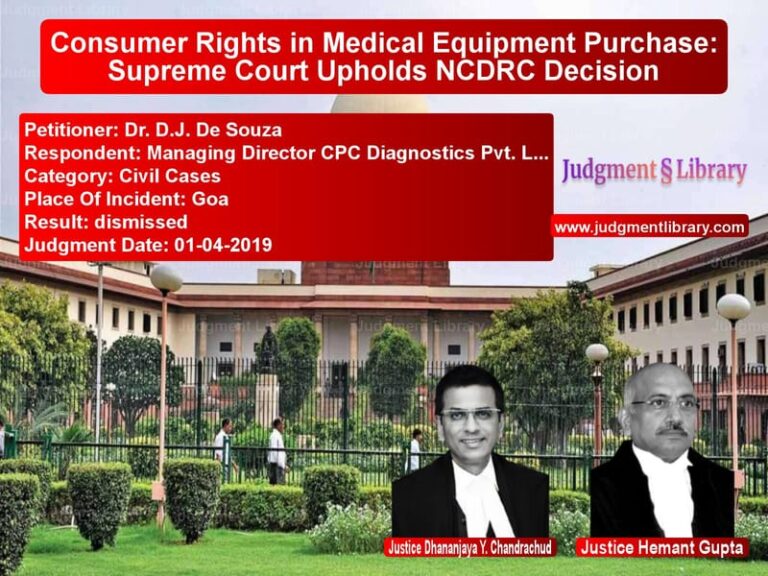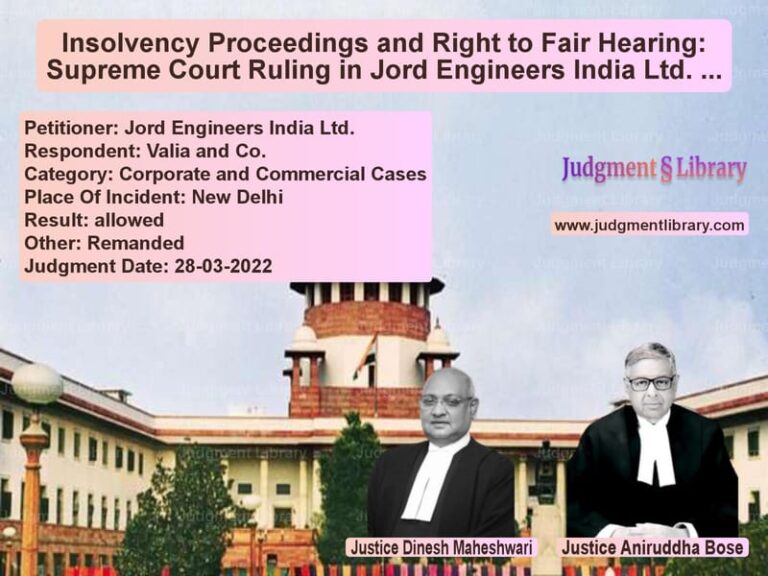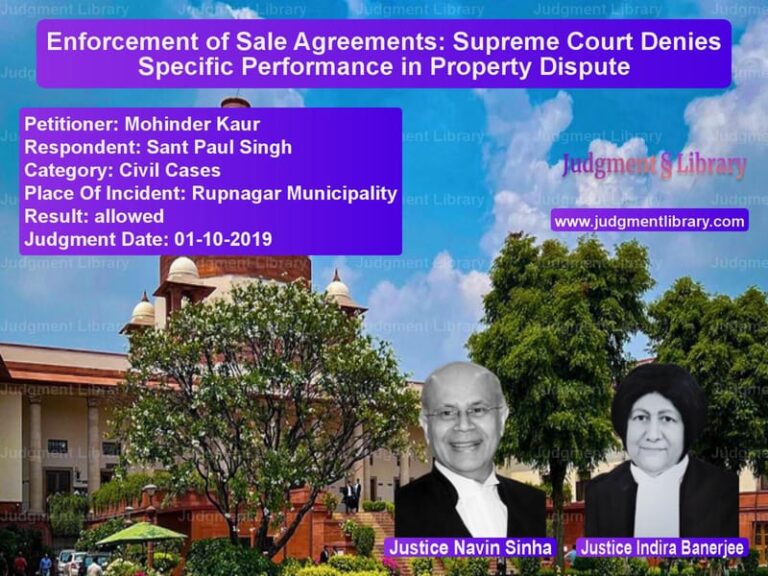Supreme Court Overturns Delhi High Court’s Order in Land Sale Dispute
The Supreme Court of India recently ruled in Kalawati & Ors. vs. Rakesh Kumar & Ors., a long-standing legal dispute concerning the enforcement of a land sale agreement executed in 1986. The Court overturned the Delhi High Court’s decision and reinstated the trial court’s ruling, dismissing the plaintiff’s claim for specific performance of the contract.
Background of the Case
The case involved a disputed agreement to sell agricultural land in Mehrauli, New Delhi. The plaintiff, Rakesh Kumar, entered into an agreement on May 29, 1986, with Kalawati and her co-owners to purchase the land at a price of Rs.1,32,000 per acre. The agreement required the sellers to obtain a ‘no objection certificate’ and other approvals necessary for completing the sale.
However, the sellers did not execute the sale deed, prompting Rakesh Kumar to file a suit for specific performance in 1987. The case dragged on for decades, eventually reaching the Supreme Court in 2018.
Arguments Presented
Petitioners’ (Sellers’) Arguments
- The plaintiff was not financially capable of completing the transaction.
- Rakesh Kumar had failed to deposit the balance sale consideration, which showed his lack of readiness and willingness to perform the contract.
- The agreement’s clause requiring the ‘no objection certificate’ was vague and did not specify which authorities needed to issue the certificate.
Respondent’s (Buyer’s) Arguments
- The sellers deliberately delayed obtaining the necessary approvals to avoid completing the sale.
- The plaintiff had demonstrated his intent to fulfill his part of the agreement.
- Since the sellers had transferred the land to third parties in 1995, they should not be allowed to benefit from their wrongful actions.
Supreme Court’s Ruling
A bench comprising Justice Madan B. Lokur and Justice Deepak Gupta ruled in favor of the sellers, dismissing the suit for specific performance.
1. Readiness and Willingness of the Buyer
The Court reiterated the legal principle that in specific performance cases, the plaintiff must prove that they were ready and willing to fulfill their contractual obligations. The judgment stated:
“Readiness refers to the financial capacity to pay the purchase price, while willingness involves the conduct of the plaintiff in taking steps to complete the transaction.”
The Court found that Rakesh Kumar failed to prove either readiness or willingness. His bank account statements showed insufficient funds, and his income was too low to support the purchase.
2. Failure to Deposit Balance Sale Consideration
During the trial, Rakesh Kumar was required to deposit the remaining sale price as a condition for obtaining an injunction against alienation of the land. He failed to do so, leading the Court to conclude that he lacked the financial capacity to execute the agreement.
3. Vague Terms in the Agreement
The agreement mentioned the need for a ‘no objection certificate’ but did not specify which authority was responsible for issuing it. The Supreme Court observed:
“There is nothing to indicate the nature of the ‘no objection certificate’ required or which authorities were to issue it. This clause appears to have been inserted without proper application of mind.”
Key Observations
- The Supreme Court criticized the long delays in contract enforcement cases, calling for better case management systems.
- The Court reaffirmed that specific performance is a discretionary remedy and cannot be granted unless the plaintiff proves financial readiness and willingness to perform their obligations.
- The judgment emphasized that vague contract terms cannot be enforced against a party if the obligations are not clearly defined.
Conclusion
The Supreme Court’s ruling in Kalawati & Ors. vs. Rakesh Kumar & Ors. clarifies key principles in contract enforcement and land sale disputes. The judgment reinforces that buyers must prove their financial ability and readiness before seeking specific performance. By overturning the High Court’s ruling, the Court upheld the sellers’ rights and emphasized the importance of clear contractual obligations.
Petitioner Name: Kalawati (D) Through LRs. & Ors.Respondent Name: Rakesh Kumar & Ors.Judgment By: Justice Madan B. Lokur, Justice Deepak GuptaJudgment Date: 16-02-2018
Don’t miss out on the full details! Download the complete judgment in PDF format below and gain valuable insights instantly!
Download Judgment: Kalawati (D) Through vs Rakesh Kumar & Ors. Supreme Court of India Judgment Dated 16-02-2018.pdf
Direct Downlaod Judgment: Direct downlaod this Judgment
See all petitions in Property Disputes
See all petitions in Specific Performance
See all petitions in Contract Disputes
See all petitions in Judgment by Madan B. Lokur
See all petitions in Judgment by Deepak Gupta
See all petitions in allowed
See all petitions in supreme court of India judgments February 2018
See all petitions in 2018 judgments
See all posts in Civil Cases Category
See all allowed petitions in Civil Cases Category
See all Dismissed petitions in Civil Cases Category
See all partially allowed petitions in Civil Cases Category







